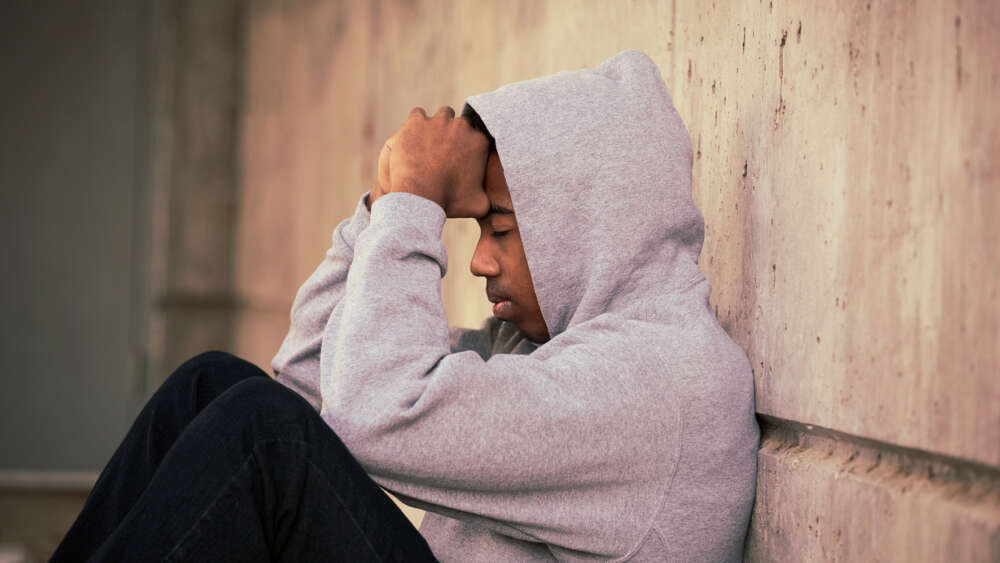Homeless, harrassed and unemployed: the reality facing more young Aussies
Disturbing trends made worse by COVID
The already “too-high” rate of youth homelessness in Australia is expected to surge in coming months due to COVID-19’s impact, according to Mission Australia.
A new youth homelessness report released today by Mission Australia reveals one in six Australians aged 15-19 has experienced homelessness at least once, with or without their families. This includes spending time without a fixed address, living in a refuge or transitional accommodation, and couch surfing.
“Too many young people in Australia don’t know where they’re going to sleep tonight.” – James Toomey
Notably, of the 13 per cent of young people who said they had “couched surfed”, almost one in five (18.8 per cent) had first done so when under the age of 12.
“Too many young people in Australia right now don’t know where they’re going to sleep tonight,” CEO of Mission Australia, James Toomey, told Eternity.
The “Staying Home” homelessness report – based on the results of Mission Australia’s Youth Survey Report 2019 – collates responses from more than 25,000 young people across Australia.
While the proportion of young people who have experienced homelessness hasn’t changed since Mission Australia’s last report in 2017, the situation is likely to worsen because of COVID-19.
“Many young people who have lost jobs due to COVID-19 are now unable to afford to pay their rent, or they’re escaping situations of heightened family conflict.” – James Toomey
“Over the last few months, Mission Australia has seen an increase in young people seeking support from our youth homelessness services, such as youth refuges for emergency relief, support and accommodation, due to the instability caused by COVID-19,” said Toomey.
“This is partly because of growing youth unemployment rates, with many young people who have lost jobs due to COVID-19 now unable to afford to pay their rent – or they’re escaping situations of heightened family conflict, or a decline in mental wellbeing due to spending more time at home.”
Although some young people actually have been better off during COVID thanks to government measures, Toomey warns this may not last.
“In some circumstances, the increase in income support in response to COVID-19 has helped some young people who we were assisting and who were at risk of homelessness, to finally be able to afford basic essentials including rent, depending on their situation. So we cannot afford to go back to the previous low rates of income support.
“Mission Australia anticipates a surge in homelessness if current income support rates are cut to pre-COVID-19 levels, and if state initiatives to place rough-sleepers in hotels or permanent accommodation are discontinued without a much-needed investment in new social and affordable homes.”
Young people who had been homeless were twice as likely to have been bullied and to report psychological distress.
The impacts of homelessness on young people are explored in the Staying Home report. It found young people who had been homeless were twice as likely as those who hadn’t faced homelessness to have been bullied, and twice as likely to report psychological distress.
They were four times more likely to feel very sad or sad with life as a whole, and more likely than their peers to express concerns about family conflict, mental health, financial security, suicide and coping with stress.
These impacts can create “insurmountable barriers as they move into their adult lives”, according to Toomey.
COVID-19 is also creating or exacerbating these issues for more young people as they find themselves without stable accomodation.
“As a result of this instability, some may be missing school, others may be experiencing mental illness and living in situations of family conflict with minimal sense of safety and wellbeing,” said Toomey.
“These young people are more likely to be disengaged from education and employment, which can have significant impacts on their future.”
“This public health crisis has really pinpointed that young people need safe, affordable and appropriate housing.” – James Toomey
Mission Australia – along with other organisations who are part of the Everybody’s Home campaign – is calling on the government to end homelessness with a national plan to create 500,000 new social and affordable homes by 2030. This includes youth-specific social housing options. Such a plan will be more important than ever in a post-COVID world, said Toomey.
“As Australia moves toward COVID-19 recovery, the government must ensure that no one gets left behind, including young people without a safe place to call home.
“This public health crisis has really pinpointed that young people need safe, affordable and appropriate housing so they can stay well, study, work and safely connect with community.”


